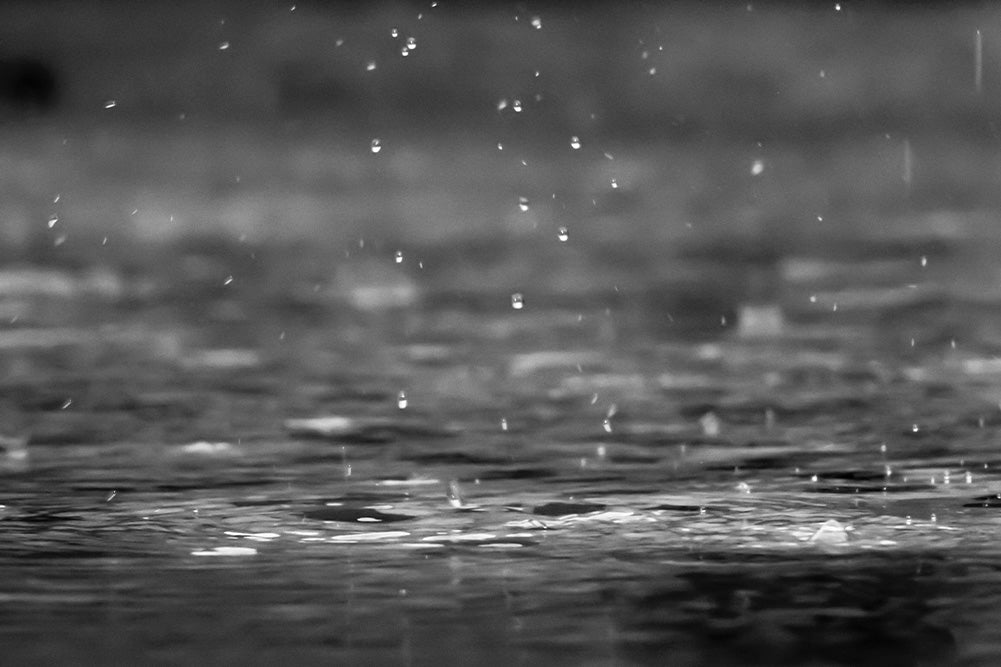Your Cart is Empty
May 30, 2024 3 min read

As the world becomes more populated, water usage is greatly increasing. There are more people consuming water, more demand for produce grown with water, and more industries needing water to run. In short, water supplies in some parts of the United States are quickly diminishing. To combat this, many individuals turn to collecting their own water from rain. While rainwater has many advantages, is it really safe to drink?
Rainwater can be collected, or “harvested,” in a relatively inexpensive manner. Many camping stores or online retailers sell water barrels, and these can be set up under your gutter. When it rains, rainwater flows off of the roof into the gutter, and from there the water flows into the barrel.
Not only does collecting rainwater give you free, usable water, but it can also reduce storm runoff and prevent flooding of sewer systems during heavy rain (1).
Collecting rainwater comes with a slew of usages–some safer than others–depending on the frequency of rain in the area, air pollution, and methods of storing water (2). Rainwater can be used effectively to water plants, as well as for large-scale irrigation. It can also be used relatively-risk free for washing clothes. Rainwater may also be used for drinking, bathing, brushing teeth, and washing dishes, but it should not be used for these purposes without being treated first.
While rainwater is an environmentally-friendly supplemental source of water, it is not necessarily the cleanest. Rain falling directly from the sky is typically safe to drink, but it cannot be collected in large quantities without first flowing off of the roof and into a gutter. The CDC cites that bird poop, dirt, and old roofing materials are a few sources that can introduce harmful substances like asbestos, lead, and copper into the water (3).
Coming in contact with the roof of your house may also bring bacteria, pollutants, and parasites into the water (2). These contaminants often lead to disease outbreaks, making rainwater unsafe to drink. For this reason, many counties require permits or forbid the consumption of rainwater, so check any local restrictions first before collecting rainwater.
With proper treatment, rainwater can become safe to drink. The three main water treatment options outlined by the CDC are boiling, chemical disinfection, and water filtration. Boiling can remove most germs and bacteria, but harmful chemicals are not removed. Chemical disinfection, like iodine or chlorine pills, can also remove germs but not all chemicals. Water filters are the only treatment that can remove both chemicals and bacteria, but only certain filters have this capacity. Be sure to invest in a filter that is independently lab-tested to remove both chemicals and germs from the water, like a Seychelle Hollow Fiber Straw. Hollow fiber membrane filtration catches even the most microscopic of bacteria and parasites, removing up to 99.999% of these contaminants.
Alternatively, to treat larger quantities of water, consider boiling water from the rain barrel to remove germs, then filter it through a Radiological Water Pitcher to effectively remove harmful chemicals and heavy metals.
Collected rainwater passes from the roof, to the gutter, to the rain barrel, which gives it plenty of time to collect harmful contaminants. Without treatment, it is not safe to drink. However, proper treatment allows rainwater to be an affordable and environmentally-friendly supplement to buying drinking water. To ensure your rainwater is treated properly, consider Seychelle water filters.
Is rainwater straight from the sky safe to drink?
Yes, mostly. Rainwater is typically straight to drink straight from the sky, but in areas with poor air quality or large pollutants, rainwater is not safe to drink straight from the sky.
How do you safely collect rainwater for drinking?
Rainwater is most commonly collected via water barrels. Water barrels are placed under a gutter, and the water drains from the roof into the barrel. However, rainwater is not safe for drinking until it is treated properly.
Is rainwater safe to drink if boiled?
No. Boiling water can remove germs and bacteria from rainwater, but harmful chemicals and heavy metals cannot be boiled out.
References